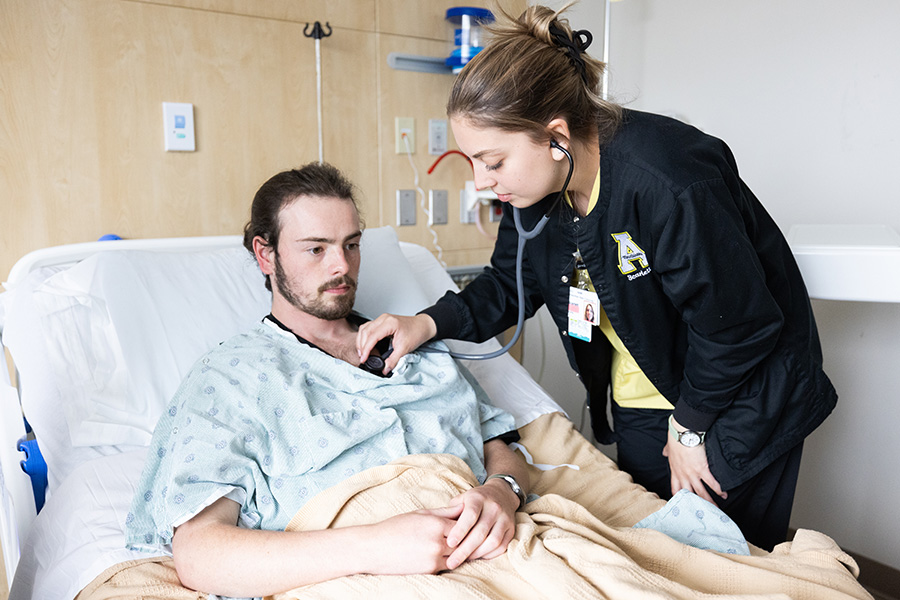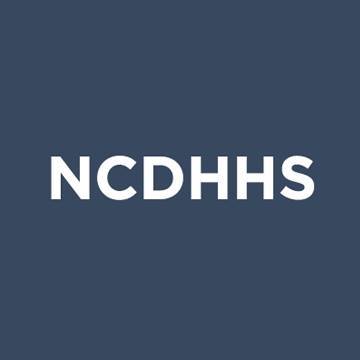
Last Updated on July 30, 2024 11:30 am
BOONE, N.C. — Appalachian State University will receive nearly $2.2 million over two years to expand its nursing degree programs, part of a groundbreaking statewide effort to address a nursing workforce shortage in North Carolina.
The University of North Carolina System announced July 16 that it has awarded nearly $29 million in grants — funded by the North Carolina General Assembly as part of last year’s state budget — to expand nursing education at 12 public universities and North Carolina’s Area Health Education Centers.
“Dedicated nurses are the backbone of a strong health care system, and we see huge demand for nursing talent across North Carolina,” said UNC System President Peter Hans. “Our public universities not only train the next generation of nurses, but also provide excellent professional development and life-saving research for health care providers. I’m grateful to our lawmakers for helping us meet those needs more effectively.”
Like many states across the country, North Carolina is coping with a significant drop in nursing professionals. The state is projected to have a shortage of up to 18,600 registered nurses over the next decade — a major challenge for health care providers and an aging patient population — according to an analysis by UNC-Chapel Hill’s Sheps Center for Health Services Research.
Nursing students face rigorous education and licensure requirements, which makes it challenging to quickly expand the nursing workforce. And the Great Resignation, which saw tens of millions of Americans voluntarily quit their jobs in the aftermath of the pandemic, has sharply impacted health care professions and added to the decline of working nurses.
The recently distributed grants are designed to help public universities produce more nursing graduates. They will fund everything from new faculty positions to state-of-the-art equipment, allowing nursing schools to expand class sizes and create more effective, high-quality training. New funding will also support initiatives for undergraduates who want to enroll in nursing programs but need help to meet coursework and admissions requirements.
“App State embraces the challenge to increase access to quality health care in the rural areas of our state,” said Dr. Heather Norris, the university’s interim chancellor. “We appreciate the support from the North Carolina legislature and the UNC System, and the trust placed in us by the taxpayers of the state. Our outstanding students and faculty are already improving the health of communities in our region, and we welcome this opportunity to continue our contributions to North Carolina’s workforce development and economic well-being.”

At App State, the funding will enable the Department of Nursing to hire additional faculty and staff to provide increased instructional support and student resources. App State’s nursing degree offerings include two undergraduate programs — a Bachelor of Science in Nursing and an online RN to BSN program — and an online Master of Science in Nursing to train nurse educators and health care leaders. For 2024 and 2023, the BSN program boasts an impressive first-time NCLEX (National Council Licensure Exam) pass rate of 100%, with a seven-year average first-time pass rate of 97%.
“Our BSN program has established a strong reputation of excellence with a high NCLEX board pass rate and an emphasis on training nurses in a variety of clinical rotations in rural and urban settings in hospitals, outpatient facilities and inpatient care facilities,” said Dr. Marie Huff, dean of the Beaver College of Health Sciences. “That extensive clinical training pays off; we often hear how prepared our nurses are when they begin their careers taking care of patients and their families, and working to improve the health of their communities.”
UNC System institutions, along with the state’s community colleges, are some of the largest producers of new nurses in North Carolina. Over the past decade, the UNC System has graduated a total of 27,191 nurses with a bachelor’s degree and 5,709 with a master’s degree.
The System’s goal is to increase its output of nursing degrees by 50% over the next 10 years.
“Tackling the nursing shortage in North Carolina has been one of my top priorities, and I am glad to see the UNC System expand nursing education across the state,” said North Carolina Sen. Ralph Hise (R-Mitchell), a Class of 2000 alumnus of App State. “The university system has a tremendous opportunity to help close this gap in our workforce and produce highly talented nursing graduates.”
In addition to Appalachian State University, 12 other institutions are grant recipients:
- East Carolina University
- Fayetteville State University
- North Carolina Agricultural and Technical State University
- North Carolina Central University
- University of North Carolina at Chapel Hill
- University of North Carolina at Charlotte
- University of North Carolina at Greensboro
- University of North Carolina at Pembroke
- University of North Carolina Wilmington
- Western Carolina University
- Winston-Salem State University
- North Carolina Area Health Education Center
Dr. Tammy Haley, interim chair of the Department of Nursing, said the department is on track to increase the number of Bachelor of Science in Nursing (BSN) graduates by 60% from 2022 to 2026.
“We are so thankful to receive this support to expand App State’s BSN program to address the critical need for nurses in North Carolina while maintaining the high-quality nursing education that we are known for,” Haley said.
“Health care in North Carolina will continue to place extraordinary demands on critical allied health professions, particularly on nurses who serve a vital part of the health care teams across the state,” said North Carolina Rep. Donny Lambeth, (R-Forsyth). “The grants provided will go a long way towards helping to attract and educate more students into this demanding profession. The General Assembly is proud of its work to help strengthen educational opportunities in North Carolina for young people who are interested in pursuing a career in nursing.”



















